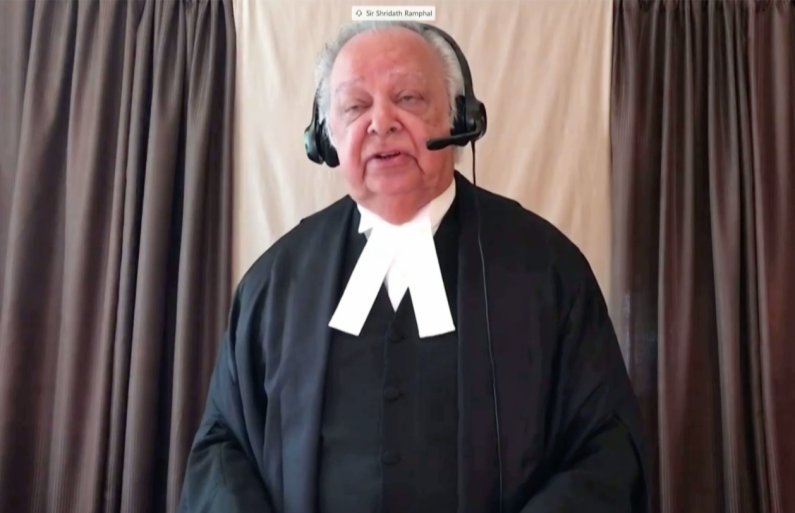
Guyana’s Co-Agent and Head of the Legal Team in Guyana’s border case against Venezuela, Sir Shridath Ramphal opened Guyana’s arguments before the International Court of Justice today on the issue of the Court having jurisdiction to hear the matter.
Venezuela which has been maintaining that the International Court does not have jurisdiction stayed away from the hearing. It has submitted documents to support its position while not appearing before the Court.
In his opening remarks, Sir Shridath said Venezuela’s participation could have been helpful.
“It is unfortunate that Venezuela has chosen not to participate in these hearings. Undoubtedly, it would have been more helpful to the Court for both parties to appear to fully present their arguments in the first round and respond to each other in second. But at least the Court has not been left to speculate as to what Venezuela might have said had it appeared in this Great Hall of Justice”, Sir Shridath told the Judges via video conference.
Sir Shridath said Guyana’s case on the Court having jurisdiction is based on the plain text of the 1966 Geneva Agreement by which the parties consented to accept the decision of the UN Secretary-General on the means of settlement of their dispute over the validity of the 1899 Arbitral Award.
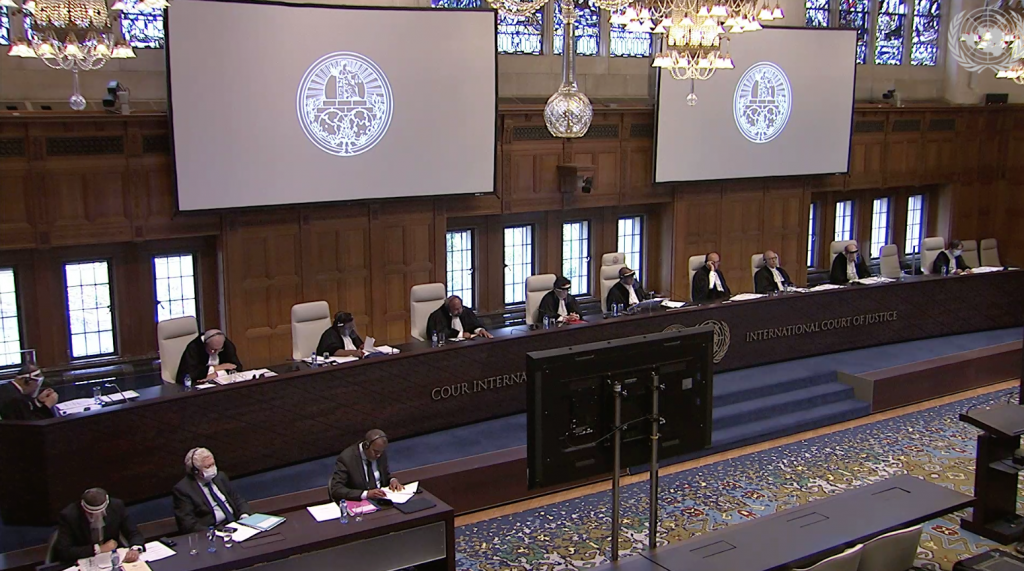
He said that included judicial settlement by the International Court of Justice and that the dispute is settled by the ICJ once it is the means for settlement chosen by the Secretary-General of the United Nations.
According to Sir Shridath, Venezuela’s contention that the Court lacks jurisdiction is without any foundation, adding that the Court has jurisdiction to proceed to the merits of the case that is before it.
“Almost 60 years of Venezuela trying and failing to spoil the sanctity of the Treaty of Washington and to nullify the Paris Award, the Secretary-General of the United Nations indicated to the Presidents of Guyana and Venezuela in these words and I quote ‘I have fulfilled the responsibility that has fallen on me within the framework set by my predecessor and significant progress not having been made toward arriving at a full agreement for dissolution of the controversy, I have chosen the International Court of Justice as the means that is now to be used for its solution.’ That is why we are here, attended by the faith of the people of Guyana in this international Court of Justice and in the rule of law internationally”, Sir Shridath pointed out.
Once the Court agrees with Guyana and establishes that it has jurisdiction, it will proceed to hear the actual case.
Guyana is seeking to obtain a final and binding judgment from the Court that the 1899 Arbitral Award, which established the location of the land boundary between then-British Guiana and Venezuela, remains valid and binding, and that Guyana’s Essequibo region belongs to Guyana, and not Venezuela.
Under the United Nations Charter and the Court’s own rules, its final judgments both on jurisdiction and the merits will be legally binding on Guyana and Venezuela, whether or not Venezuela participates in the proceedings.











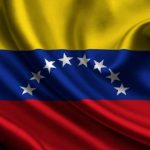
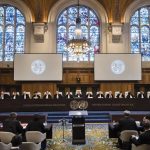
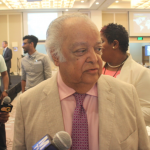


You must be logged in to post a comment Login